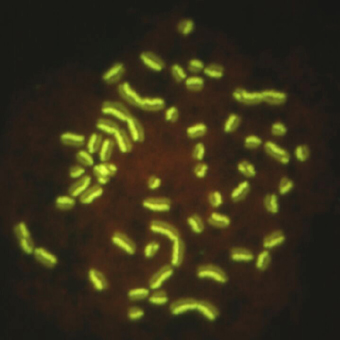Animals, especially those fed with natural pasture, represent real environmental sentinels. Indeed, being them fed with local plants and soil (taken together with grass) in place of breeding, give an idea of the degree of contamination of food and of the food chain. Indeed, many mutagenic substances present in the environment pass through animal products, to humans, laying the foundations for the onset of abnormal clinical picture (reproductive, hormonal and immune disorders). Check these animals mean, then, check the food chain and, indirectly, the human health. As known, many mutagenic leave clear signs at chromosomal level (gap, chromosomal and chromatid breaks, fragments) which denote genomes potentially exposed to genetic mutations (incorrect cellular divisions both at the mitosis and meiosis). Cytogenetic studies conducted on sheep reared in the province of Naples and exposed at low and high levels of dioxin have revealed a pronounced chromosomal fragility found to be, respectively, 4, 8 and 14 times in sheep exposed to 5, 39 and 51 pg/g fat of dioxins, respectively, than that found in sheep control (not exposed to dioxins). Even levels of sister chromatid exchanges (SCEs) were significantly higher (P<0.001) in sheep exposed to dioxins, compared to those found in the controls.
Vedi anche:
Immagini:


